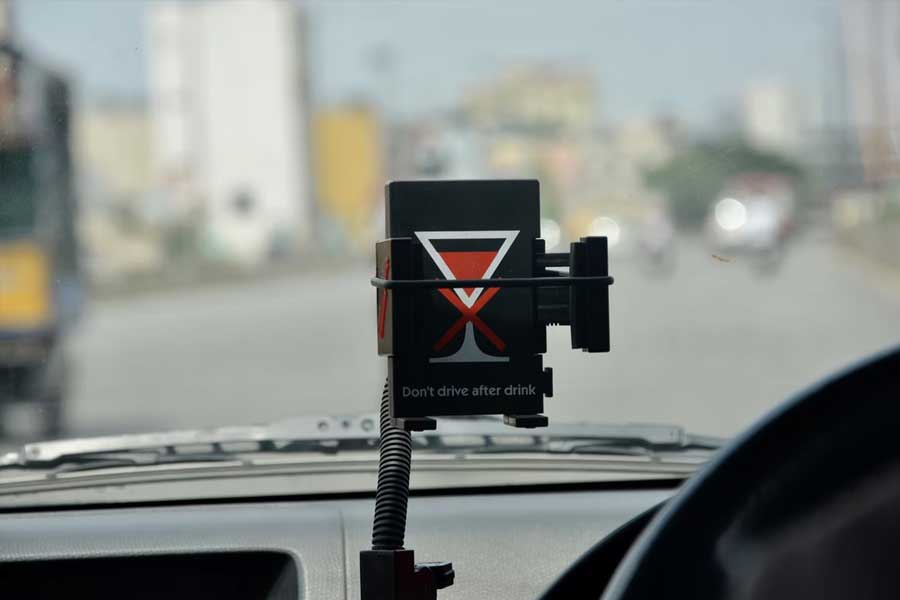If you are caught drink driving, you will be required to go to court and your licence will be disqualified. This guide seeks to give you an overview of the types of drink driving charges and the penalties the court may impose. This guide is in relation to Queensland law only.
Types of Drink Driving
In Queensland we have 4 types of drink driving charges, these are;
- Over the no alcohol limit (BAC over 0.00 but under 0.05)
- Over the general alcohol limit (BAC over 0.05 but under 0.10)
- Over the middle alcohol limit (BAC over 0.10 but under 0.15)
- Over the high alcohol limit (BAC over 0.15)
What happens after you’ve been caught?
If you are caught drink driving your licence will be immediately suspended for 24 hours. This means you are not able to drive for that period and if you do you risk being charged with driving while suspended and a further charge of drink driving.
If you are charged with any of the following drink driving offences your licence will be immediately suspended until your matter is finalised in court:
- Drink driving with a reading over 0.10
- Failing to provided a breath or blood specimen
- A second charge of drink driving while there is a drink driving charge still before the courts
In certain circumstances, it is possible to apply for a special licence which will allow you to drive before your matter is finalised in court. This is called a section 79E order and is only available to people charged with drink driving who hold an open licence. You are not able to apply for a section 79E if you hold a provisional or learner’s permit or you already have a charge for drink driving still before the courts.
Are you eligible for a work licence or other permit to driving during your disqualification?
You may be eligible for a work licence if you have been charged with drink driving and meet certain criteria. To find out more information about whether you are eligible we recommend you read our essential guide to obtaining a work licence:
Going to Court
Generally most court matters follow this procedure;
- The court will generally start at 9:00am
- From just after 8:30am there will be a police prosecutor in the court room giving people their QP9 (what is a QP9 see our article here) and asking people if they are pleading guilty, not guilty or seeking an adjournment
- Once the court starts your name will be called at some point
- The court will then ask you if you are pleading guilty, not guilty or seeking an adjournment.
- If you are seeking an adjournment then the court is quite willing to grant an adjournment on the first occasion the matter is heard in court. If you seek further adjournments the court will need to be convinced you have a valid reason.
- If you are pleading guilty then the guilty plea can usually be conducted there and then. The police prosecutor will provide the court with a verbal overview of what occurred and then tender your criminal and traffic history (if you have any). You can then address the court on what occurred and the penalty to be imposed. The types of things that the court might be interested in hearing from you in regards to the penalty included.
- Why the offence occurred
- What you do for living
- How much money you make a week
- The impact a disqualification will have on your family and personal life
- The impact a disqualification will have on your employment or education
- Addressing any similar charges you have previously committed
What penalties can the court impose?
The table below sets out the disqualification ranges and maximum fine the court can impose for a first offence.
|
BAC |
Disqualification period |
Maximum fine |
|
Over the no alcohol limit (BAC over 0.00 but under 0.05) |
3-9 months |
$1929 |
|
Over the general alcohol limit (BAC over 0.05 but under 0.10) |
1-9 months |
$1929 |
|
Over the middle alcohol limit (BAC over 0.10 but under 0.15) |
3-12 months |
$2757 |
|
Over the high alcohol limit (BAC over 0.15) |
Minimum 6 months |
$2859 |
What can I do help reduce my penalty?
We also strongly suggest you attend some form of driving course before your court date. We recommend the Queensland Traffic Offenders Program (“QTOP”). This course can be done online or in person. All the details including how to enrol are on their website at www.qtop.com.au .
The program is designed to increase the understanding of participants of their social commitments in general and traffic laws in particular. When your matter is finalised in court a magistrate may take into account any changes of attitude exhibited by you while participating in the program.
How to get your licence back after your disqualification
It is critical to note that upon completion of your licence suspension period you cannot simply start driving again. You must attend Queensland Transport and have your licence re-issued.
If you fail to attend Queensland transport and do so, or if you are caught driving during the suspension period you will be charged with disqualified driving which carries a mandatory licence disqualification of two years.
You will be issued with a probationary licence, which you must hold for at least 1 year. You may also be subject to the alcohol ignition interlock requirement once your disqualification ends.
Will you need an interlock device?
The Alcohol Ignition Interlock Program applies to drivers who are convicted of high and mid range drink driving offences. The interlock program aims to help drink drivers separate drinking and driving when they get their licence back. If you don’t participate in the program you won't be able to drive for 2 years after your licence disqualification ends.
You need to participate in the interlock program if you commit and are convicted of any of the following offences:
- driving under the influence of alcohol
- a drink driving offence with a blood/breath alcohol concentration of 0.10 or more
- failing to provide a blood/breath specimen for analysis
- dangerous driving while affected by alcohol
- 2 or more drink driving offences within the 5 years.
You need to have an interlock device installed in the vehicle your drive during your time in the interlock program. Depending on your circumstances, you may be eligible for financial assistance to help with interlock costs.
You must meet strict eligibility criteria to apply for an interlock exemption.
From Friday 10 September 2021 the following will occur
- Mid-range (blood/breath alcohol content of 0.10 or more) drink drivers will also need to participate it the interlock program.
- Participants will need to complete a 2-part performance-based interlock program.
- Breath samples and scheduled interlock service attendance will be monitored while the participants are in the program.
- Participants who do not follow the rules will have their time in the program extended.
- Drink drivers who choose not to participate won't be able to drive for 5 years.
How do I get more information or engage you to act for me?
If you want to engage us or just need further information or advice then you can either;
- Use our contact form and we will contact you by email or phone at a time that suits you
- Call us on 1300 952 255 seven days a week, 7am to 7pm
- email This email address is being protected from spambots. You need JavaScript enabled to view it.
Need more information?
We have a range of articles on drink driving on our blog. Some of the most recent have included:
- Top 5 Drink Driving Myths
- The Essential Guide to Obtaining a Work Licence
- Drink Driving on a Lime Scooter
- How Drink Driving Matters are Heard in Queensland
- What happens after your drivers licence is disqualified?
- Refusing a Breathalyser Test in Queensland
- Can you commit a drink driving offence in your driveway?
- Immediate suspension for drink driving
- Case Study - High Range Drink Driving and Disqualified Driving
- Three High Range Drink Driving Charges
- Special Hardship Orders v Work Licences
- High Range DUI
- Going through a drink driving charge in Brisbane Magistrate Court
- DUI Charges
- Ultimate Guide to High Range Drink Driving






